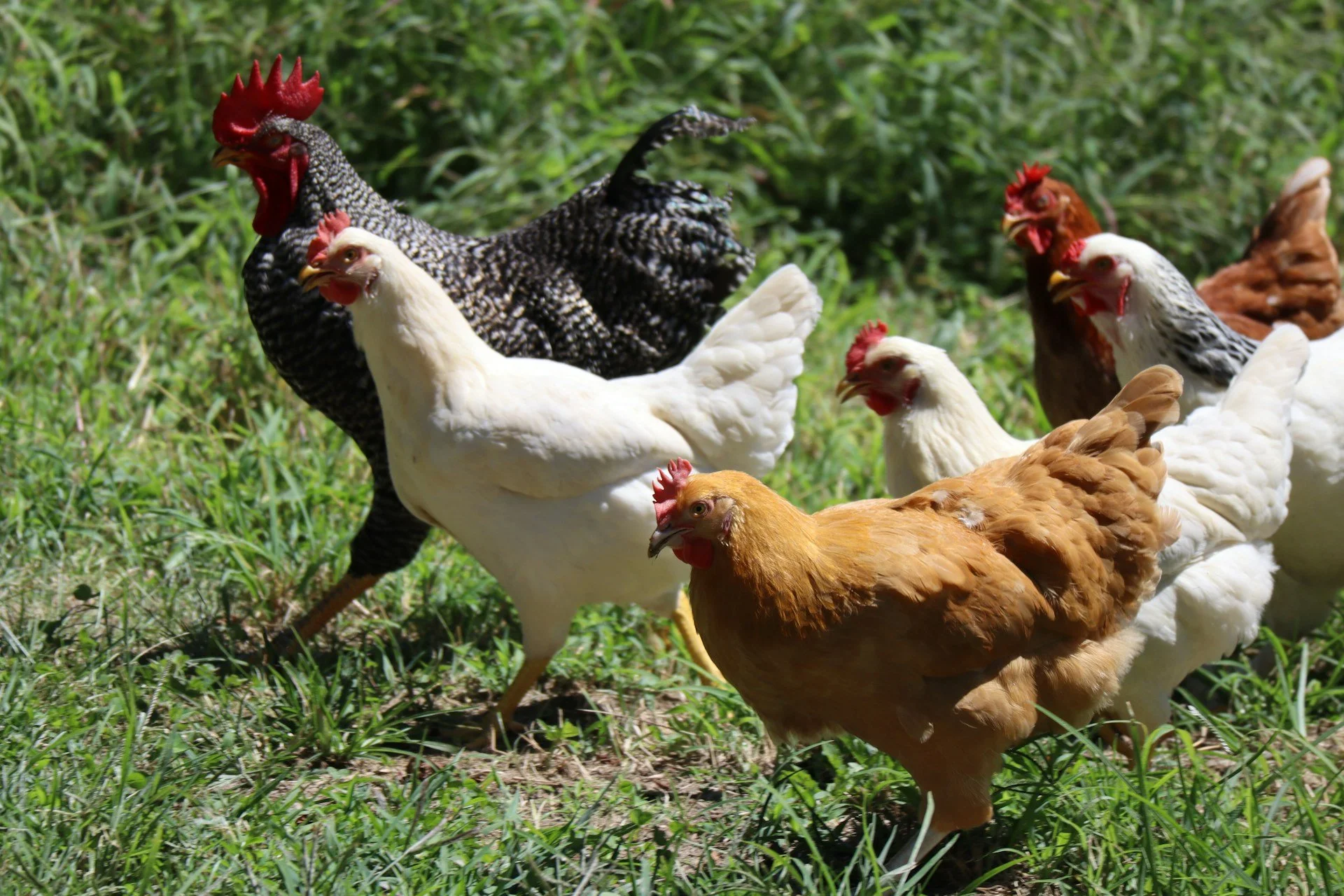Keeping Hens in the Garden: A Guide to a Happy, Healthy Flock
/Photo by Zachariah Smith on Unsplash
There’s something magical about a garden that hums with life—not just from buzzing bees and rustling leaves, but from the gentle clucks of a well-tended flock. Keeping hens in the garden adds so much more than fresh eggs. They aerate the soil, gobble up pests, and turn kitchen scraps into rich compost. Their presence connects us more deeply to our food systems and to the rhythm of the natural world.
With thoughtful planning and care, you can create a harmonious garden with hens that supports both your plants and your feathered companions.
Building the Perfect Coop for Your Space
A solid coop is the heart of a happy flock. It doesn’t need to be fancy, but it does need to be safe, well-ventilated, and comfortable. Aim for at least 2–3 square feet of indoor space per bird, plus an outdoor run where they can scratch and stretch their legs. Include nesting boxes for egg-laying, secure latches to keep predators out, and make sure there’s adequate airflow without drafts.
In smaller yards, mobile coops—also known as chicken tractors—are a great solution. They let your hens graze different areas without damaging a single patch. Position your coop in a shady spot to avoid overheating and consider using natural fencing like shrubs or trellises to help the structure blend with your garden’s design.
Everyday Care: What Hens Need to Thrive
Caring for hens is simple but regular. They need access to clean water and balanced feed every day, plus time to forage and stretch. Their coop should be cleaned weekly to prevent disease and odors, and bedding refreshed regularly in nesting boxes.
Hens are hardy, but illness can still strike. Watch for signs like reduced egg production, coughing, changes in appetite, or droopy posture. A balanced diet, clean living space, and safe outdoor area will prevent most issues—but it’s wise to be prepared. If your flock shows signs of illness, it's important to act quickly—especially with concerns like respiratory issues or the risk of avian flu, which is why staying informed about effective bird flu treatment is key to protecting your hens and your garden ecosystem.
Adding herbs like oregano and garlic to their diet can offer natural immune support. Just like any garden element, the health of your flock is about observation, prevention, and care over time.
New to Hens? Here’s What to Know First
If you’re new to chicken-keeping, start with a small flock—three to five birds is plenty. Choose breeds that are friendly, adaptable, and well-suited to your climate. In the US, some of the most popular breeds include Rhode Island Reds, Plymouth Rocks, Buff Orpingtons, and Ameraucanas. These hens are known for being hardy, gentle, and reliable egg layers.
Remember, hens live for 6 to 10 years and need consistent care, so this is a long-term commitment.
There’s a special kind of joy in watching your hens peck contentedly while your flowers bloom and vegetables ripen. A garden with hens is a space that breathes, moves, and gives back. When cared for with intention, hens bring balance and life to your garden—not just through eggs or compost, but through the rhythm and beauty of living in tune with nature.
























